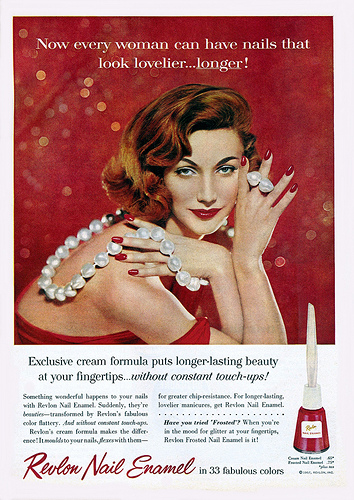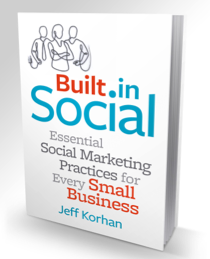
Advertising (especially digital) has earned a reputation as something interruptive, and therefore, unwanted. Selling earned the same reputation back in the days of the stereotypical fast talking salesmen.
In both circumstances, the problem was not with the medium for communicating the message – it was the message itself.
While social media has in many ways changed the world of marketing by giving everyone nearly free access and use of media, we can learn from the early days of modern marketing.
Early media professionals actually did advertising quite well – until they were tempted to do otherwise. And the same thing is playing out today with regular marketers like you and me (but of course, not specifically you and me).
We Loved Early Television Advertising
In a recent video blog Facebook advertising was compared with the early days of television.
The point made was that while Facebook users hate Sponsored Story ads, they are necessary for keeping Facebook profitable – much as hated commercial advertising did for television during its early days.
The host was making a generalization that those of us who were there know is not true.
I was around when television was getting off the ground, and we watched advertising just as eagerly as we did the Ed Sullivan and Jackie Gleason shows.
We didn’t hate commercials – we enjoyed them. Let me explain why.
First, consider that the medium of television was fresh and powerfully engaging. The entire family gathered around that one television set together, much as we virtually gather together around Facebook most evenings.
When any medium of communication is new it instantly grabs our attention, just as Facebook did – including the early ads.
From that point forward, as long as the programming is interesting and informative, we continue to eagerly consume all of it – shows and advertising alike.
The Welcomed Commercial Break
We enjoyed those television commercials in the ’60’s because we were hungry for information about new consumer products. Also, commercials gave us a break (known as a commercial break) from the regular programming.
Thus, in the early days of television, advertising was actually embraced because it improved the overall television experience. Then, something happened. The quest for more profits compromised the experience.
The same thing happened with email.
If you were around when email was new, you recall how much you loved getting an email. What has changed?
What was once welcome news has became spam – unwanted emails that not only fail to deliver valuable information, they undermined your ability to get to the good stuff. That continues to hold true today.
The reason people dislike Facebook Sponsored Stories is that while they are news, there is an implied bias. They are really native advertising – ads disguised as news. This tends to compromise the experience by being less than honest, which is a slippery slope when it comes to social marketing.
Honest Advertising Still Works
Ads are most effective when they are done well – and clearly delivered as an ad. This is why Facebook users do not mind (and in many cases welcome) ads in the sidebar – we see them as what they are – advertising.
If we want to take a break to notice the so-called Marketplace ads in the Facebook sidebar we can. If not, we can stay with the regular programming. We don’t feel we are being spammed, just marketed to.
Advertising that offers value in the form of news or entertainment has merit.
It worked in the early days of television, and it can also work on Facebook and your other social marketing channels – including email, provided it is delivered appropriately.
The game of marketing has definitely changed to one that is more social, personal, and value-oriented. Nevertheless, we can still learn from and apply some of the time-tested practices that long preceded social media.
Make your advertising so good it enhances the user experience for your audience..
Effective advertising is simple: Deliver value in an honest way, and by all means, at a reasonable frequency.
What are your thoughts on advertising today? Please leave a comment and share.
About the Author: Jeff Korhan, MBA, helps mainstream small businesses create exceptional customer experiences that accelerate business growth. Get more from Jeff on LinkedIn, Twitter and Google+.
Jeff is also the author of Built-In Social: Essential Social Marketing Practices for Every Small Business – Released April 15, 2013 (Wiley)


